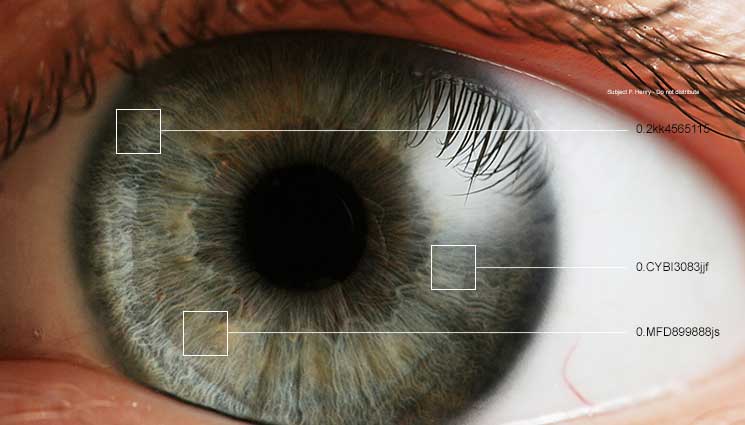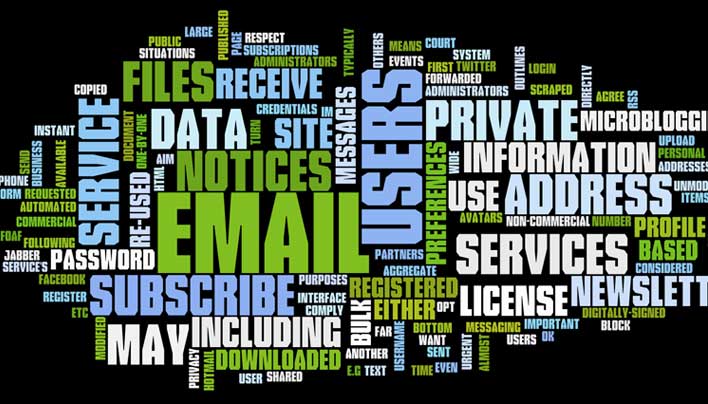
Our world is becoming ever more electronic and digitized with each passing day. Every time we turn around, something that we used to have on paper has been turned into an “App”. We don’t even get the big phone books anymore at our house. The big ones doubled as booster seats for a lot of kids growing up. Strong men would rip them in half to prove how awesome they were. Now, it seems the old phone books have turned into smaller and smaller versions as the years pass and I don’t believe the companies that produce them can be making any money anymore. I assume a lot of this had to do with two factors; loss of advertising and the ability to look up numbers online.
Along with the phone books are the big rotary dial phones which evolved into touch-tone, then cordless, now smart phones. I find myself missing the old heavy phones when I have a situation that calls for a great hang-up by slamming down the phone. You simply don’t get the same satisfaction by pressing the “end call” button.
I remember the phone book was always beside or under the phone when I was growing up. Now, they send incredibly small phone books to my house but I never see the big 3 pound behemoths anymore. My wife always throws these phone books in the recycling bin when the time comes each year for the phone book bunny to drop them on our driveway. When I see them, usually as I am taking the bin to the road, I pull them out and hide them away in my office. Why? Spare toilet paper of course because I never use them to look up a number. They have become unnecessary for their purpose and the only real use I can think of for them in my survival preparations is toilet paper or fire starter in case of emergency.
Before I start to sound too much like your uncle and his stories of having to “walk to school 10 miles, uphill both ways” some of you might say that we have it much better now. A quick search on Google, Bing or Siri on your iPhone or Android will help you find any business or telephone number you want and you can easily push a button and dial the number directly. Who wants to worry about getting the book, finding the listing and then dialing the number? The phone book is symbolic of a dying breed and I don’t imagine they will be around much longer; which brings me to the main thrust of this post.
Losing our books
Most of our collective information is already stored online somewhere. Our health information is increasingly digitized and they are trying to mandate this information is shared with a whole host of other agencies. At my dentist office for example, the records of every tooth, cavity and filling are entered into a program and stored somewhere online while I watch from my chair with gauze in my mouth and a bright light in my eyes. How much beef jerky or beer you purchase from the grocery store and the type of golf balls you buy are stored and accessed by those key fobs you carry on your key chain. Bill Gates is trying to have the detailed records of every child’s school history stored online to be shared with others. You don’t even need a printed airline ticket anymore; just have them send you the scan-able bar code to your smart phone. Soon will we even need paper?
Books in general are meeting a similar fate. The direction publishers are going now is digital obviously. If you don’t already own a kindle or a tablet with an app that can read books, you are behind the times.
This trend will continue and eventually, publishers will stop printing paper books entirely except I imagine for luxury or collectors editions – for the people who want or can afford them. Schools are already moving to laptops and tablets for delivering content and even libraries are phasing out the older books in their inventory. In fact, libraries themselves are going to be unnecessary before long if Google has anything to say about it. Google Books Library Project is currently scanning all of the books they can get their hands on. Even now, you can go online to the Google Book site and read 1984 by George Orwell. If we are able one day to read anything on our computers, why would we need a library? In the future, could the public “library” be just a simple building filled with computers sitting on desks? What if Starbucks becomes the new library?
All of this brings me back to the initial problem. If we ever reach a day when we have no printed books and the total knowledge of everything ever written exists only in a database housed at Google, what type of problems could this pose?
“What do you mean, when there are no more books? I have a ton of them in my house”, you say. “They would never get rid of books.” I like a good book as much as the next person. In fact, it was a book that made me think of the subject of this post. In his book, 1984, George Orwell paints a vision of the future, which by the way has become mostly true. In this future, there is a branch of government, similar in scope to the Department of Homeland Security. This department however is called the Ministry of Truth. The Ministry of Truth is not concerned with buying billions of rounds of ammunition; its primary role is propaganda for the government. In this capacity it was sometimes deemed necessary to change the information in the “public” archives.
In a quote from Orwell’s 1984, the main character Winston is describing what happens to people who don’t go along with the system.
“PEOPLE SIMPLY DISAPPEARED, ALWAYS DURING THE NIGHT. YOUR NAME WAS REMOVED FROM THE REGISTERS, EVERY RECORD OF EVERYTHING YOU HAD EVER DONE WAS WIPED OUT, YOUR ONE-TIME EXISTENCE WAS DENIED AND THEN FORGOTTEN. YOU WERE ABOLISHED, ANNIHILATED: VAPORIZED WAS THE USUAL WORD.”
Yes, this is fiction from a book that was written in 1949, but isn’t our dependence on electronic records facilitating this same type of potential future?
The Personal Angle
Like I said above, more and more information about you is stored online. Everything from what you buy, to the clothes you wear, websites you frequent, emails you send, images you take and where they are taken. Additionally, your banking information, the bills you pay, travel plans, insurance policies, health information, relatives, people you share interests with are all there waiting for someone to look at. It isn’t just companies like Facebook, Amazon, Google and Apple you have to contend with the NSA has been collecting everything that goes on for years.
Imagine if everything that was online about you disappeared one day. What if your bank accounts, DMV records, insurance, mortgage, college loans, emails, photos, music, appointments all vanished. Soon, your finger prints, eye scans and DNA could be used for identification. They already have highly graphic images of your entire body if you have flown and gone through the naked body scanners. Would you be able to prove who you were anymore if “the system” said you weren’t you? Don’t believe something like that is possible? You have passwords on all of your information, you say? Do you remember a virus called Flame?
FLAME CAN SPREAD TO OTHER SYSTEMS OVER A LOCAL NETWORK (LAN) OR VIA USB STICK. IT CAN RECORD AUDIO, SCREENSHOTS, KEYBOARD ACTIVITY AND NETWORK TRAFFIC. THE PROGRAM ALSO RECORDS SKYPE CONVERSATIONS AND CAN TURN INFECTED COMPUTERS INTO BLUETOOTH BEACONS WHICH ATTEMPT TO DOWNLOAD CONTACT INFORMATION FROM NEARBY BLUETOOTH-ENABLED DEVICES. THIS DATA, ALONG WITH LOCALLY STORED DOCUMENTS, IS SENT ON TO ONE OF SEVERAL COMMAND AND CONTROL SERVERS THAT ARE SCATTERED AROUND THE WORLD. THE PROGRAM THEN AWAITS FURTHER INSTRUCTIONS FROM THESE SERVERS.
If computer viruses can do all of this and be created to shut down nuclear reactors, certainly they could go wipe anyone’s credit history and online information, right? Who would want to do something like that? Good question, but that misses the point. The point is, the possibility that yours, anyone’s online information, of which we are amassing more and more of could be vaporized.
The Historical Angle
If all historical record and knowledge is contained in databases housed in government offices or even college campuses, how easy would it be to change or “vaporize” history if the event in question is deemed controversial or damaging to the regime? Don’t like what happened in the past with the pilgrims? Poof! If you don’t like what someone is saying about the latest Supreme Court decision, poof! It can all be vaporized. At the very least, it can be easily changed.
Look at the model of Wikipedia where anyone can create or edit content. They can change what someone else has written, and in some cases a small group of reviewers can decide whether the post is worthy or not of inclusion. It’s very simple if everything is in a database and stored “in the cloud”.
How can I do anything about this?
There are some things we won’t be able to change without a lot of protest and yelling and a ton of wasted cardboard and pithy sayings. Actually, I am starting to believe that we as a society are past the point where protesting will ever bring serious change anymore. Certainly we can change the mind of lower level guppies, but the big fish that are plotting our destiny’s are never anywhere a riot or protest would affect. Riots may break shop windows but the real puppet masters are out of reach. Most of the time.
You can begin making sure that you have your own records.
Make copies of your important documents and store them in a couple of different formats. First, a hard copy in a safe or safe deposit box and then alternate versions on a thumb drive if you have to evacuate your house. Make duplicates for your spouse and children. What documents make sense? Drivers licenses, birth certificates, passports, utility bills, mortgage documents, tax returns, credit card numbers.
Print out your address book and stick it somewhere. Why? Because if you are like me, you hardly know 10 phone numbers anymore. My brain relegated all of that memory to old reruns of the A-team. Phone numbers, in my case are stored in speed dial and forgotten. If you have a backup copy (or two) and stored in a fire safe that would allow you to still call the people you know, providing the phones worked. A copy should also go on that thumb drive I mentioned.
Buy printed books when you are filling your survival library. Don’t rely solely on the massive collection of Army PDF manuals you have downloaded because if you don’t have a computer or electricity what good will they do you? Buy historical curriculum so that if needed you can teach younger people history.
Do you have the best recipes for cooking stored food when the grid goes down in the world pinned to your Pinterest account? What if that disappears? Are all your family photos of your children in every stage of life online? What if Facebook and Picasa disappear? At a bare minimum I would copy all of my photos to a hard-drive with DVD backup to keep my photos.
Just some food for thought, but hopefully you can draw some comparisons in your own lives and how the data we keep and is kept about us could all just vaporize some day.















